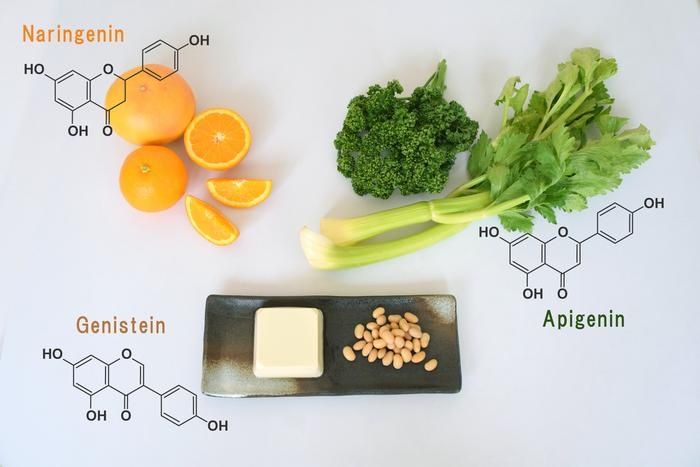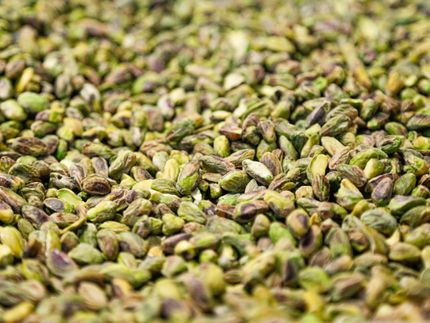Decoding flavonoid metabolism: a closer look at plant-based diets
Understanding how our bodies break down flavonoids from plants and how this process relates to their potential health benefits
Advertisement
In a world where plant-based lifestyles are on the rise, the power of foods such as broccoli, celery, and tofu, which are rich in flavonoids, is becoming clearer. Flavonoids are phenolic compounds produced by plants that are essential for plant development and defense and have long been said to have therapeutic and preventive effects against cancer and heart disease. However, the exact process of how our bodies metabolize flavonoids remains unclear.

Typical foods that contain naringenin, apigenin and genistein and the chemical structural formulas
Osaka Metropolitan University
An international team of researchers led by visiting researcher Tsutomu Shimada and Professor Shigeo Takenaka of the Graduate School of Human Life and Ecology at Osaka Metropolitan University, has shed light on the mechanism of three major flavonoids - naringenin, apigenin and genistein - and the processes by which the body metabolizes them. Molecular docking analyses revealed that human enzymes modify flavonoids in a similar way to how plants modify flavonoids.
“The results of this research are fundamental in elucidating the correlation between the metabolism of flavonoids in the body and their potential health benefits,” explained Professor Takenaka.
Original publication
Haruna Nagayoshi, Norie Murayama, Vitchan Kim, Donghak Kim, Shigeo Takenaka, Hiroshi Yamazaki, F. Peter Guengerich, Tsutomu Shimada; "Oxidation of Naringenin, Apigenin, and Genistein by Human Family 1 Cytochrome P450 Enzymes and Comparison of Interaction of Apigenin with Human P450 1B1.1 and Scutellaria P450 82D.1"; Chemical Research in Toxicology, Volume 36, 2023-10-2


























































